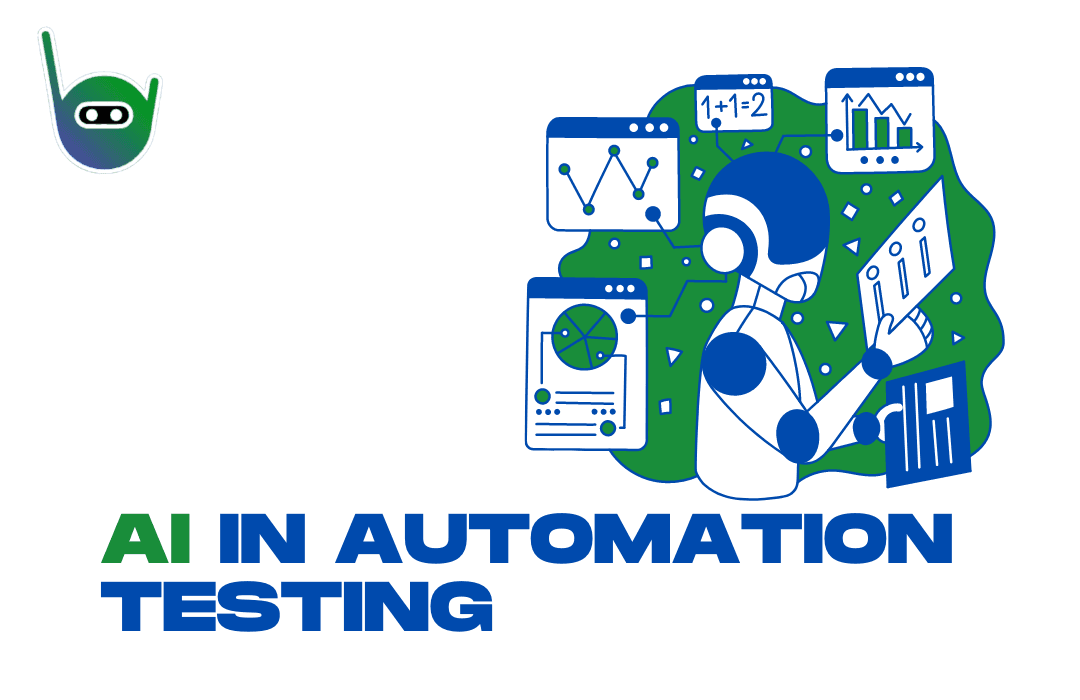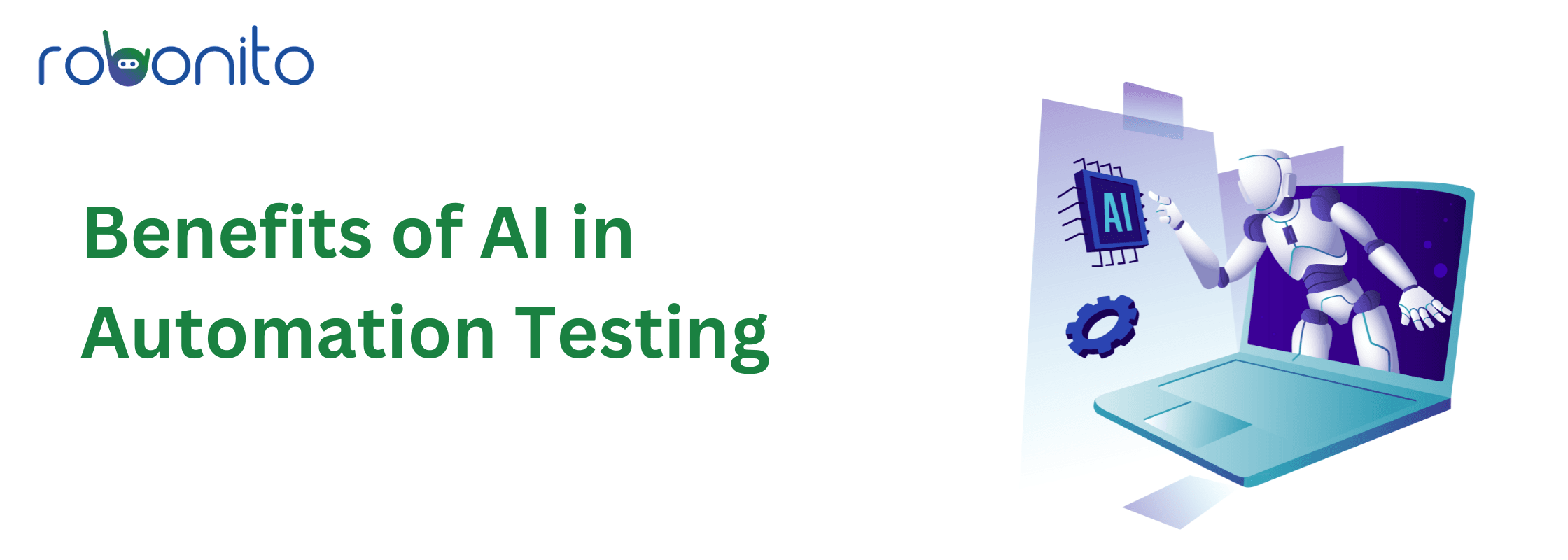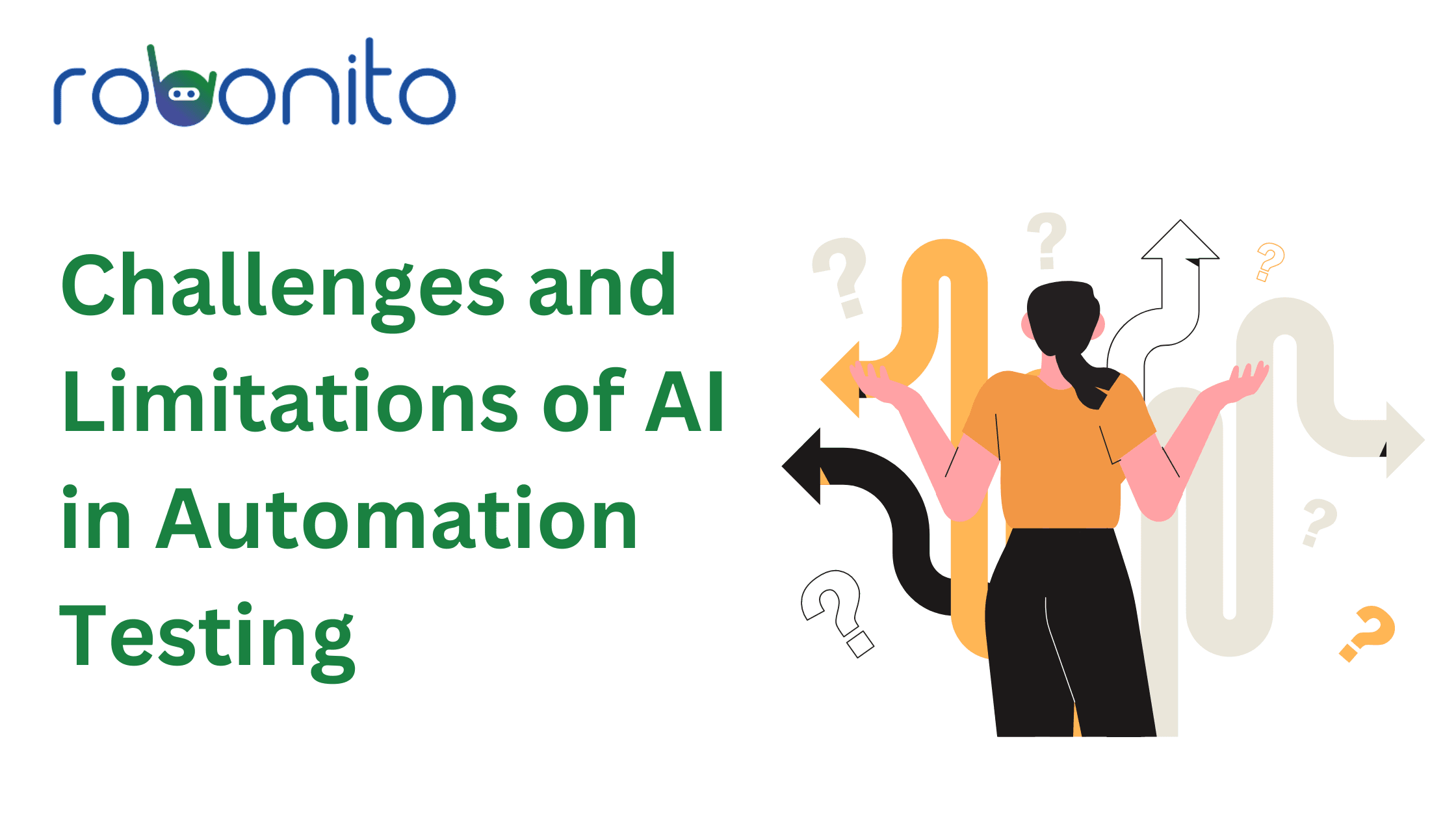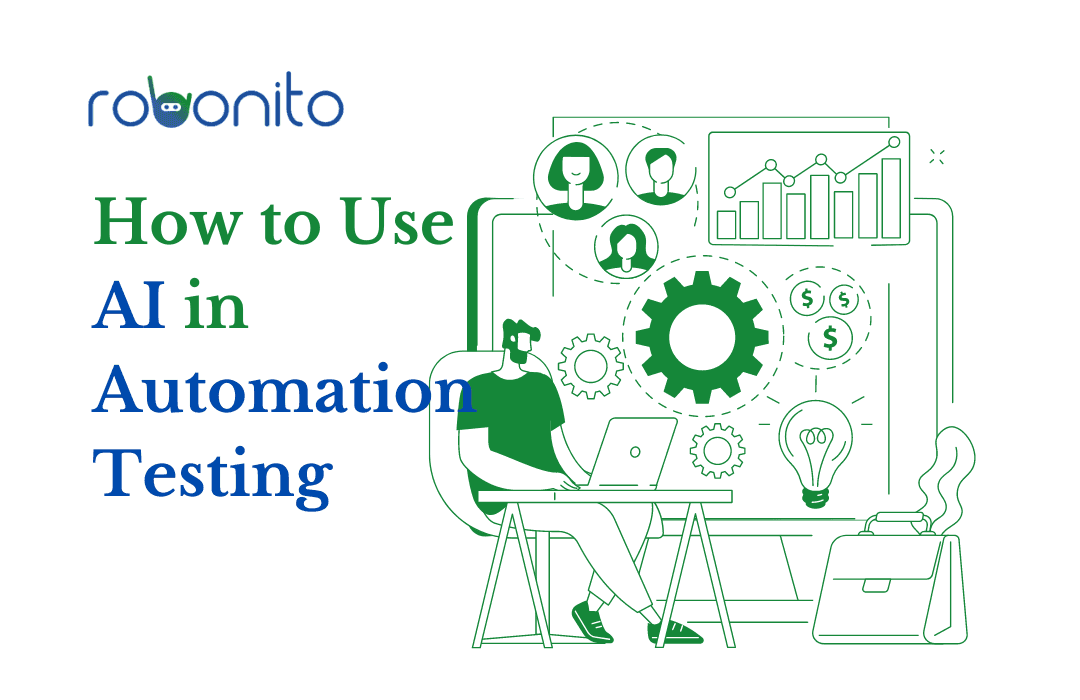Automation testing has become an integral part of the software development life cycle, allowing organizations to enhance the efficiency and effectiveness of their testing processes. With the advent of artificial intelligence (AI), automation testing has reached new heights, enabling testers to streamline their efforts and achieve higher levels of accuracy. In this article, we will explore how to effectively utilize AI in automation testing, providing you with valuable insights on leveraging this cutting-edge technology to optimize your testing endeavors.

Introduction to AI in Automation Testing
Artificial intelligence (AI), commonly referred to as machine intelligence, enables computers to mimic human intelligence and carry out tasks that ordinarily demand human involvement. AI has the potential to dramatically improve the speed and precision of the testing process when used in automation testing. It gives testers the ability to automate monotonous operations, evaluate complicated data, and make wise choices based on patterns and insights.
Benefits of AI in Automation Testing

Utilizing AI in automation testing offers several key benefits:
Increased Efficiency: AI-powered automation testing can execute tests at a much faster pace than manual testing, leading to significant time savings.
Improved Accuracy: AI algorithms can identify patterns, anomalies, and potential issues with greater precision, reducing the chances of false positives or false negatives.
Enhanced Test Coverage: AI can handle vast amounts of data, enabling comprehensive test coverage across various scenarios and configurations.
Intelligent Test Prioritization: AI algorithms can prioritize test cases based on their impact and criticality, optimizing testing efforts.
Predictive Analysis: AI can analyze historical test data and predict potential areas of risk or failure, allowing testers to proactively address issues.
Continuous Learning: AI models can learn from past test results and adapt their testing strategies, improving over time.
AI-Powered Test Planning and Management

AI can play a crucial role in test planning and management, helping testers optimize their testing strategies. By analyzing historical data, AI algorithms can identify patterns, dependencies, and risk factors, enabling testers to focus on critical areas. AI can also assist in resource allocation, estimating testing efforts, and generating test schedules.
AI-Driven Test Case Generation
Creating effective test cases is a time-consuming and challenging task. AI can automate this process by leveraging machine learning techniques. By analyzing system requirements, AI algorithms can generate test cases that cover various scenarios, edge cases, and potential failure points. This not only saves time but also ensures comprehensive test coverage.
AI-Based Test Execution and Analysis
AI can automate the execution of test cases and analyze the results with high accuracy. AI algorithms can detect patterns, anomalies, and performance bottlenecks, providing valuable insights into system behavior. Additionally, AI can automatically categorize and prioritize bugs based on severity, enabling testers to focus on critical issues.
What Are the uses of AI in Automation Testing And How It Is Used

Test Case Generation: AI can be used to automatically generate test cases by analyzing requirements, code, and user behavior. This helps in identifying critical test scenarios and ensures comprehensive test coverage.
Test Data Management: AI techniques can assist in generating realistic and diverse test data, reducing the manual effort involved in creating test data sets. AI algorithms can analyze production data and generate synthetic data that covers various edge cases.
Test Execution and Analysis: AI can automate the execution of test scripts and analyze the results. It can detect patterns, anomalies, and performance issues, allowing testers to identify potential bugs or areas of improvement more efficiently.
Test Optimization: AI algorithms can optimize test execution by prioritizing test cases based on their impact and risk. This helps in reducing the time and effort required for testing while maximizing test coverage.
Defect Prediction and Prevention: AI techniques, such as machine learning, can analyze historical data to predict potential defects or areas prone to failure. This allows teams to proactively address issues and improve the overall software quality.
Intelligent Test Reporting: AI can generate intelligent and interactive test reports that provide meaningful insights and metrics. These reports help stakeholders understand the quality of the software and make informed decisions.
Intelligent Test Maintenance: AI can assist in maintaining test suites by automatically updating test scripts when changes occur in the application under test. This helps in keeping the test suite up to date and reduces manual effort.
Test Environment Management: AI can optimize test environment setup and configuration by analyzing dependencies and automatically provisioning required resources. This streamlines the testing process and minimizes configuration-related issues.
Test Automation Framework Enhancement: AI techniques can enhance test automation frameworks by providing self-healing capabilities. This means that the framework can automatically adapt to changes in the application's UI, reducing the maintenance effort.
Continuous Testing: AI can enable continuous testing practices by automating the execution of tests in continuous integration and delivery pipelines. This ensures that software is continuously tested for quality throughout the development lifecycle.
These are just a few examples of how AI can be used in automation testing. By leveraging AI capabilities, organizations can significantly improve the efficiency, accuracy, and effectiveness of their testing processes, ultimately leading to better software quality.
10 Great Ways to Use AI in Your Test Automation

Artificial Intelligence (AI) has revolutionized the world of software testing, making automation testing more efficient, accurate, and reliable. By harnessing the power of AI, organizations can achieve higher levels of test coverage, faster test execution, and improved overall quality of their software products. In this article, we will explore ten great ways to leverage AI in your test automation efforts and take your testing process to the next level.
Test Case Generation
AI can significantly speed up the test case generation process. By analyzing requirements, AI algorithms can automatically create test cases, identify potential edge cases, and even predict additional test scenarios that human testers might miss. This ensures comprehensive test coverage and saves valuable time and effort.
Test Data Generation
Creating diverse and realistic test data is essential for effective testing. AI can generate synthetic test data that mimics real-world scenarios. By leveraging AI algorithms, you can automatically generate large volumes of test data with various combinations and permutations, enabling thorough testing of your software.
Test Prioritization
Not all test cases are created equal. AI can help prioritize test cases based on their impact and criticality. By analyzing historical test results and understanding the software's architecture, AI algorithms can identify the most critical test scenarios. This allows testers to focus their efforts on high-priority areas, ensuring maximum efficiency in test execution.
Test Execution Optimization
AI can optimize the execution of test suites by intelligently selecting the most appropriate test cases to run. By analyzing test dependencies, code changes, and test results, AI algorithms can create a smart execution plan that minimizes redundant tests while maximizing test coverage. This helps save time and resources during the testing process.
Defect Prediction
AI can analyze historical data and patterns to predict potential areas of risk and vulnerability. By identifying patterns of past defects, AI algorithms can provide early warnings about modules or functionalities that are more likely to have issues. Testers can then focus their efforts on these areas, proactively preventing defects and improving overall software quality.
Log Analysis and Anomaly Detection
Analyzing logs and detecting anomalies manually can be time-consuming and error-prone. AI can automate this process by leveraging machine learning algorithms. AI models can learn from historical log data and identify patterns of normal behavior. When deviations or anomalies occur, the AI algorithms can raise alerts, enabling testers to investigate and address issues promptly.
Intelligent Bug Triage
Bug triaging involves categorizing and prioritizing reported bugs. AI can analyze bug reports, historical bug data, and other relevant information to intelligently assign severity levels and prioritize bug fixing efforts. By automating bug triaging, AI reduces the manual effort required and ensures that critical issues receive immediate attention.
Test Maintenance and Adaptation
Software evolves over time, and tests need to be continuously maintained and adapted to keep up with the changes. AI can analyze code changes, understand their impact on existing tests, and automatically suggest modifications or additions to the test suite. This streamlines the test maintenance process and ensures that tests remain effective and up to date.
Test Result Analysis
Analyzing test results and generating meaningful insights is crucial for effective test reporting. AI can analyze test results, identify trends, and provide valuable insights into the quality and stability of the software. By automating test result analysis, AI saves time and enables testers to focus on interpreting the results and making informed decisions.
Self-Healing Tests
AI can enable self-healing tests, where the test scripts can adapt and recover automatically in the face of application changes or minor UI modifications. By using AI algorithms, tests can be designed to handle dynamic elements, re-identify UI components, and continue the test execution seamlessly. This reduces maintenance effort and ensures that tests remain stable and reliable.
Challenges and Limitations of AI in Automation Testing

While AI offers significant benefits, there are some challenges and limitations to consider:
Lack of Domain Knowledge: AI algorithms may struggle to understand the intricacies of the domain they are testing, leading to potential blind spots.
Initial Setup and Training: Implementing AI in automation testing requires an initial investment in setting up AI models and training them with relevant data.
Data Quality and Quantity: AI models heavily rely on data, and the quality and quantity of the available data can impact their performance.
Ethical Considerations: AI models should be used responsibly, ensuring they do not introduce biases or unethical practices in the testing process.
Best Practices for Implementing AI in Automation Testing
To maximize the benefits of AI in automation testing, consider the following best practices:
Start with Clear Objectives: Define your goals and objectives for implementing AI in automation testing to ensure alignment with your organization's testing strategy.
Identify Suitable Use Cases: Identify specific areas where AI can bring significant improvements and focus on those use cases initially.
Gather and Prepare Quality Data: Ensure you have relevant and high-quality data to train and fine-tune your AI models.
Continuously Monitor and Refine: Regularly monitor the performance of your AI models and refine them based on feedback and evolving testing requirements.
Collaborate with Domain Experts: Involve domain experts throughout the AI implementation process to ensure the accuracy and relevance of the testing results.
Future of AI in Automation Testing

The future of AI in automation testing is promising. As AI continues to advance, we can expect even more sophisticated algorithms and models that can handle complex testing scenarios with ease. Additionally, AI-powered testing tools and platforms will become more prevalent, enabling testers to leverage AI seamlessly in their testing processes.
Revolutionize your software testing with Robonito, the ultimate no-code RPA automation testing tool. Say goodbye to endless testing hours – Robonito slashes testing time by a staggering 98%! Ready to experience the future of software testing? BOOK A FREE DEMO NOW and transform your testing process today!
Conclusion
AI has revolutionized automation testing, providing testers with powerful tools to improve efficiency, accuracy, and test coverage. By embracing AI in automation testing, organizations can optimize their testing efforts, reduce costs, and deliver high-quality software products. As the field of AI continues to evolve, it is crucial for testers to stay updated with the latest advancements and leverage AI effectively to drive successful testing initiatives
Revolutionize your software testing with Robonito, the ultimate no-code RPA automation testing tool. Say goodbye to endless testing hours – Robonito slashes testing time by a staggering 98%! Ready to experience the future of software testing? BOOK A FREE DEMO NOW and transform your testing process today!
FAQs
Q1: Is AI replacing manual testing?
AI is not replacing manual testing entirely but rather augmenting it. AI helps automate repetitive tasks, analyze large datasets, and improve overall testing efficiency. However, manual testing still plays a vital role in exploratory testing, usability testing, and scenario validation.
Q2: What are the prerequisites for implementing AI in automation testing?
To implement AI in automation testing, you need to have a clear understanding of your testing objectives, access to quality training data, and the necessary infrastructure to support AI models.
Q3: Can AI detect all types of bugs in automation testing?
AI can detect many types of bugs, including functional issues, performance bottlenecks, and regression errors. However, there may be certain complex issues that require human intuition and domain expertise for identification.
Q4: How can AI help in test case generation?
AI can analyze system requirements and generate test cases that cover various scenarios, edge cases, and potential failure points. This saves time and ensures comprehensive test coverage.
Q5: Is AI in automation testing suitable for all types of software applications?
AI in automation testing can be applied to various types of software applications, including web applications, mobile applications, and desktop applications. However, the level of AI integration may vary depending on the complexity of the application and the testing requirements.
